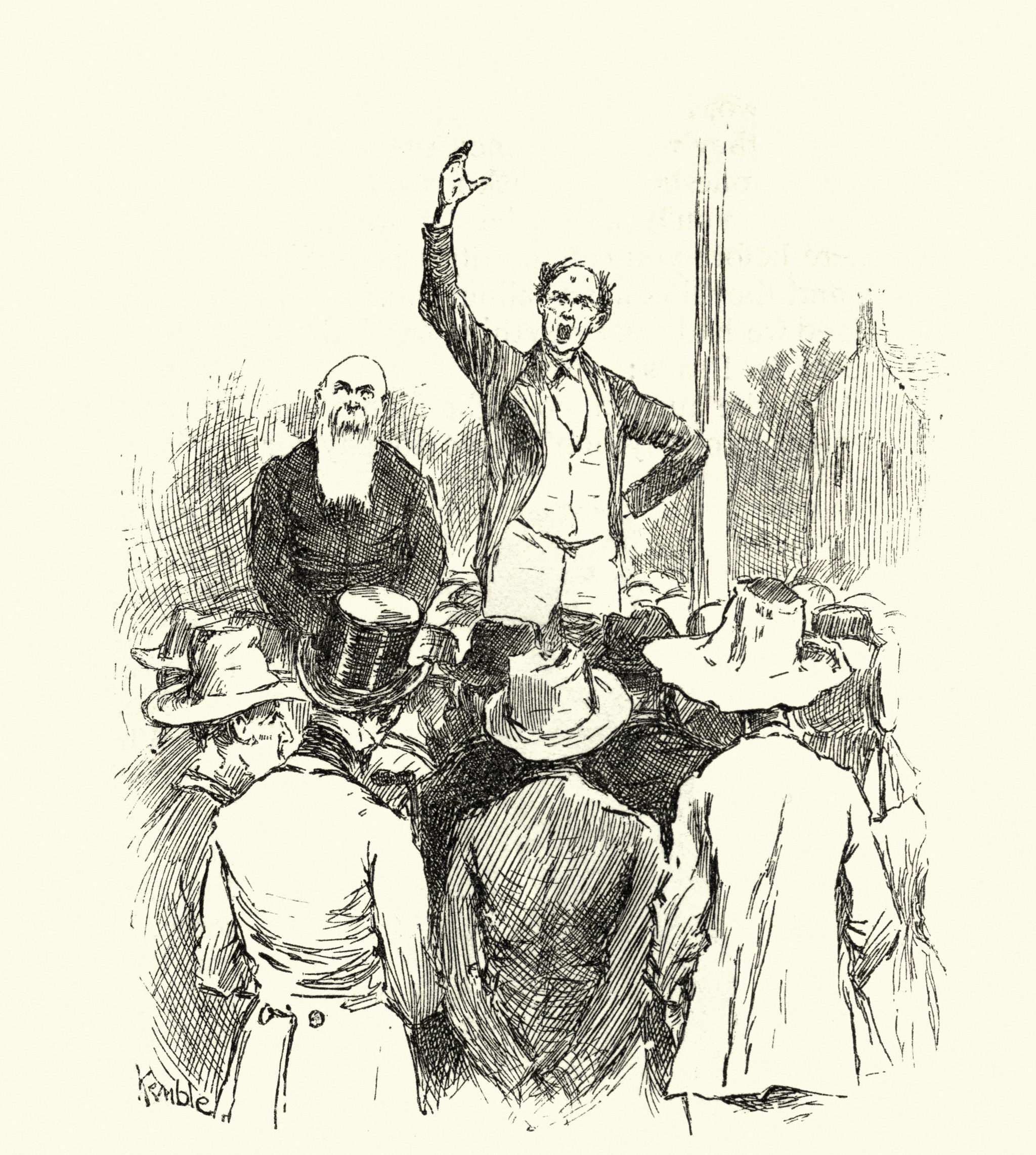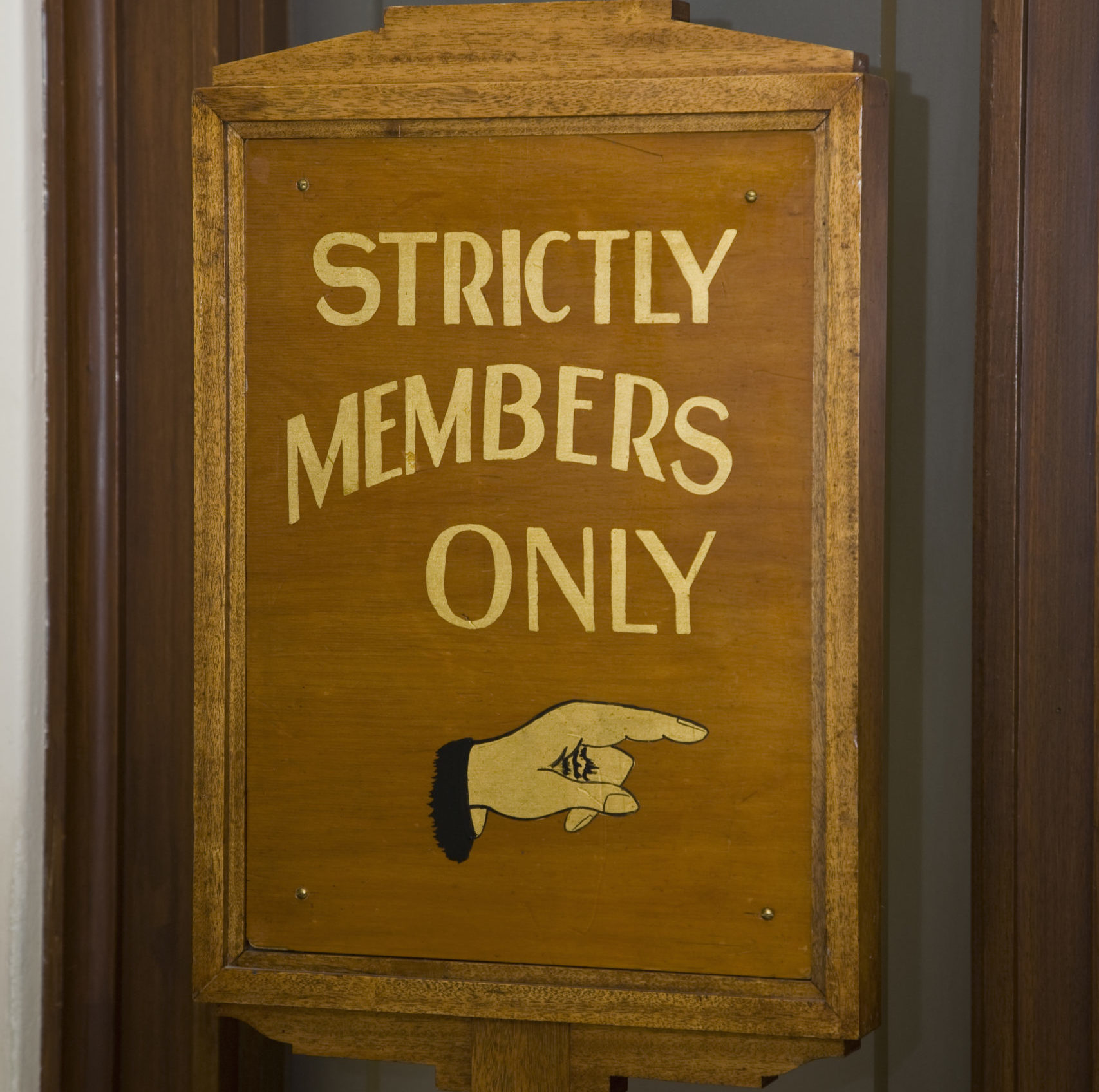Glenn Ellmers is doing important work in forcing our attention to the issue of Trump and COVID. Our media and our politics both encourage us to ignore the decisive questions that really face us by immersing ourselves in every new scandal. Social media issues from our modern boredom and need for distractions, but also becomes a kind of dark prophecy of the futility of all human action.
Morally, the attractions of this mad stream of consciousness, which is a political stream and a social media stream, are obvious: More and more, we feel helpless and hopeless, and to the extent that we have traded Enlightenment science for a science of our own fated annihilation, perhaps self-annihilation, we have bought the reassurance that there is nothing we can do but observe and, possibly, feel out gradually, fearfully, the coming end of man. Perhaps the conclusion our elites (and the more acute of our artists) draw is that robots are morally superior to people, because they process the stream and therefore seem to produce it. Robots are the image of the tyranny of expertise, the nightmare of administration, as Ellmers describes it.
Psychologically, what is at issue is less obvious, but no less important to come to understand: We are in the process of adopting social media as a willful fantasy, a replacement for realities which have disappointed us, that is, we are about to surrender our ability to reason about politics. The ultimate consequence of the frivolous idea that human affairs are merely socially constructed is the abandonment of all realities, which have to be perceived, remembered, reasoned about, with fantasies, which can be constructed in the imagination without the rigor of reasoning or the inescapable character of our perceptions, yet can produce memories and therefore trap us in a cycle of decadence we still call, nostalgically, “progress.”
Manliness and Justice
In this modern drama, Ellmers recalls us to the question of political science as we have struggled to learn it since Aristotle and as we have struggled to practice it in America in relation to our faith and our way of life. Trump stands, in this context, for a rebellion against expertise. COVID stands for the elite attempt to nationalize cowardice. The conflict is fundamental and it is, first of all, a conflict about manliness, about whether we will allow ourselves to be, as we used to say, pushed around—ruled despotically. I will try to show how these philosophical questions arise in our concrete situation, in light of the most urgent demands we make on ourselves now. Are we merely matter to be moved around and reconfigured by central planners? Or is our politics the consequence and at the same time the guide of a personal desire for freedom, for the good use of our natural powers?
Ellmers shows that the political situation is very ambiguous. We have largely failed to defend ourselves from administrative tyranny, but not completely, and we may yet recover. Several states and many more counties besides avoided most of the madness of attempting to arrest the nation.
Florida, above all, has asserted itself—even beyond Texas—as the image of the contemporary American Right, as Governor Ron DeSantis has gone on offense in a disciplined, competent way. Florida is also more like the Trump coalition and therefore more important as the hope of future political victories, including a majority coalition that can defend political freedom against our aspiring oligarchy. DeSantis himself seems to some like an improved version of Trump, as tough, but more effective as a politician—indeed, he shows the discipline and the foresight of a statesman. Altogether, the tendency is to move away from the conservatism of the Bush years to a new, Trump-like conservatism: Consider the pugnacious and Trump-endorsed J.D. Vance winning the GOP primary in Ohio, en route to a victory in the Senate election this November.
Populism doesn’t begin to describe the character of this new party: We have a great, manly anger at what has been done to families and children, at the moral and intellectual corruption of the increasingly oligarchic elites, at the attack on constitutional and natural rights by woke capitalists in massive corporations and especially in social media corporations presuming to reduce Americans to an effete conformism. Lives and livelihoods have been crushed by these elites, most shamelessly by lockdowns, various mandates, and a mad praise for violent riots. The problem of justice starts with anger at injustice, and therefore depends on a manly desire to defend oneself, and that in turn requires self-understanding—what America stands for, why that matters for all of us, and what we have to do about it. If we reflect on our anger, we will discover what we believe. This is the question Ellmers raises: are we still willing and able to defend ourselves as citizens of the American republic and to defend the republic in turn?
Healthy Cowards
Ellmers also reminds us that the danger of collapsing into servitude is at least as old as the Progressive ideology, reaching far to FDR’s notion that “necessitous men are not free men.” Well, the GOP now is the party of the poorer half of America, and we had better decide that poverty, or at least being poorer than our liberal elites, precludes neither an attachment to personal freedom nor the ability to defend political freedom, by attracting and rewarding leaders who respect equality before the law and understand that only with the consent of the governed can a governing elite be strong.
Here is our major failure: the recruitment and education of political elites at the various levels of government. The example of DeSantis was not persuasive to most GOP governors. It means little to GOP elites, especially in D.C., even as they prepare for his run for office in 2024, which they hope to administer and by which they hope to profit. The GOP’s Old Guard has shown precious little loyalty to an American people which has faced, as Ellmers recounts, liberal accusations of every imaginable sin, from racism and xenophobia to anti-scientific prejudices, and the political punishments that follow from that judgment, including inflation. The most evident sign of incompetence, if not betrayal, is the failure to look at the 2022 elections as an opportunity to call the American people to a defense of their rights and a restoration of more competent government.
Instead of a daring attempt to restore the pride and the eagerness to work to fix our problems that characterize the American people, we have a confused GOP, a party that knows neither what it stands for, nor what it stands against. As Ellmers says, it’s hard even to tell whether Trump would have had the political support to fire Fauci had he had the necessary daring. Fauci is the vision of a zombie, a living death rebuking our failure to act decisively within the bounds of the constitutional order in order to defend that order from such bureaucrats. Popular fury follows from a pained awareness of our incompetence. It is not only dangerous, but also humiliating to be ruled by such arrogant nonentities.
Ultimately, only cowards can obey such rule, which promises health only by inspiring the most ignominious and irrational fears. Caution will not explain it, because our oligarchic elites are keen on humiliating us, not caring for us. But although we have not as yet proved sufficiently manly, we already know that that’s because we have failed to organize politically. Our shame at our own shortcomings is the beginning of wisdom, and of rebellion: our revulsion at cowardice shows that somewhere, deep down, we yearn to be brave. We have to learn from our founders how to organize and act publicly, the sooner the better. We have to stand up for our rights, if we are to stand together, to find likeminded citizens and to look for the kind of political talent that can make good our demands.
Learning Politics
The political science of the founding is a test of thinkers as well as of politicians, of the electorate as much as of our institutions. It is the only thing that can help those who want to fight oligarchy, since they need, on the one hand, to make the fight political and bring it before the judgment of the people, and, on the other hand, to learn by what standards to judge our economic, technological, and spiritual circumstances if we are to have a chance of winning this fight. Politics involves much fighting, which can only be learned by fighting. But it also involves judgments about what victory and peace mean and how to get there, since our character as a people fighting for freedom will be tested now and in the years to come.
I will conclude by shifting from politics to learning and from the situation of the GOP to our human predicament. From the preference for the gym over therapy, to say nothing of drugs, to the preference for fighters over ideologues, to say nothing of the orators of sentimental pieties, the open secret of conservatism today is the need to restore manliness and, with it, the question of virtue, the question what life is worth living. If you know what time it is, you must guess that we will either very quickly run up the hierarchy of the virtues to make our way to prudence, or we will be reduced to the lives of pets. The internet is fast turning into a fantasy land closed off from politics and from any inquiry into our nature, administered by robots who seem like they will replace us not in the workplace, but at the top of the hierarchy of the animals, since robots, corporations, and ideologies pretend to offer a more rational order than anything available to us before. The alternative to this deadly novelty is the retrieval of an ancient rationalism that can oppose this fate, fend off despair, and discover our opportunities for victory in our crisis itself. That is daring thought, that is the unity of human action.






